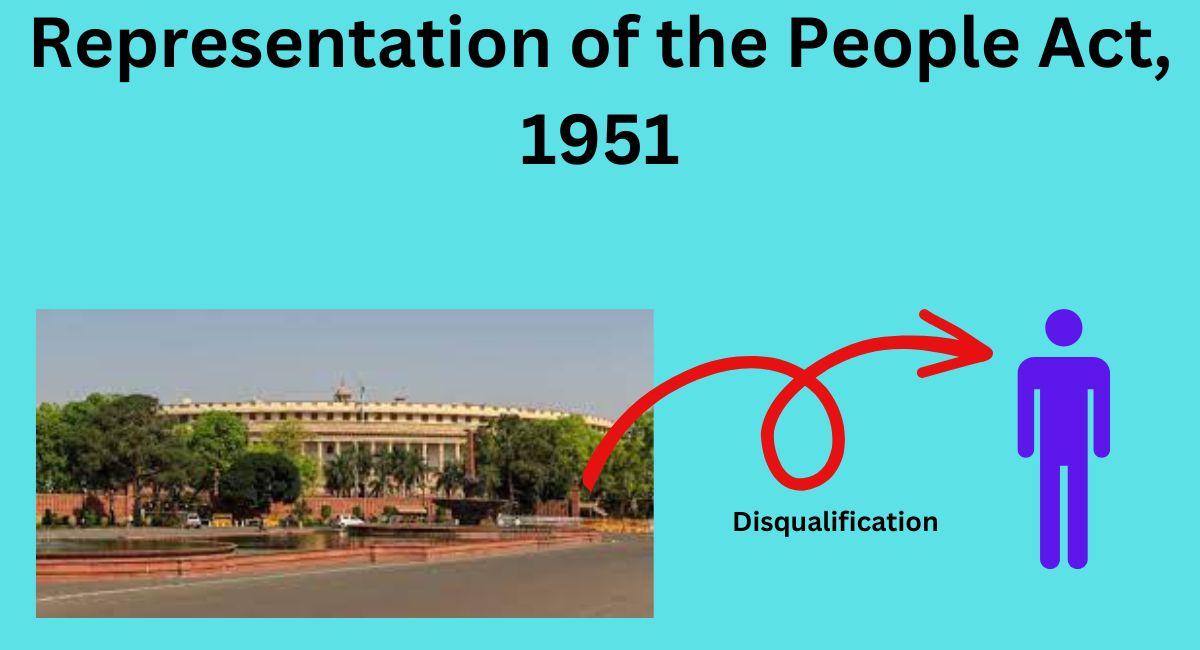The RPA 1951 (Representation of the People Act, 1951) is an important piece of legislation in India that regulates the conduct of elections. It was enacted to amend and consolidate the laws relating to the preparation and revision of electoral rolls, the delimitation of constituencies, and the conduct of elections. In this article, we will discuss the key provisions of the Representation of the People Act, 1951.

Table of Contents
Preparation and Revision of Electoral Rolls
The Act lays down the procedures for the preparation and revision of electoral rolls. The Election Commission is responsible for the preparation and revision of electoral rolls, and it is required to do so every year. The Act provides for the inclusion of names of eligible voters in the electoral rolls and the deletion of names of those who are no longer eligible to vote. It also provides for the correction of errors in the electoral rolls.
Delimitation of Constituencies
The Act also provides for the delimitation of constituencies for elections to the Lok Sabha and state legislatures. The Election Commission is responsible for delimitation and is required to do so every ten years. The Act lays down the principles for delimitation, which include population, area, and other factors such as geographical features and infrastructure.
Qualifications and Disqualifications for Membership of Parliament and State Legislatures
The Act lays down the qualifications and disqualifications for membership of Parliament and state legislatures. A person is eligible for membership if he or she is a citizen of India, is not less than 25 years of age for the Lok Sabha and 30 years of age for the Rajya Sabha, and meets certain other qualifications such as not having a criminal record. The Act also provides for disqualifications such as being of unsound mind, holding an office of profit, or being convicted of an offense involving moral turpitude.
Conduct of Elections under RPA 1951
The RPA 1951 also regulates the conduct of elections. It provides for the appointment of electoral officers, the issue of election notices, the filing of nomination papers by candidates, the conduct of polling, and the counting of votes. The Act also provides for the punishment of offenses related to the conduct of elections, such as booth capturing, impersonation, and bribery.
Section 8 of RPA 1951
Section 8 of the Indian Representation of People Act 1951 deals with disqualification of a person from voting.
Section 8 lays down the circumstances under which a person is disqualified from voting in elections. These include being of unsound mind, being convicted of certain offences, and being disqualified by a court or election commission. The section also specifies the procedure for a person to claim that they are not disqualified from voting despite the circumstances specified in the section.
It is important to note that Section 8 of the Indian Representation of People Act 1951 deals with disqualification from voting and not eligibility for candidacy, which is covered under other sections of the Act.
Conclusion
The Representation of the People Act, 1951 is a comprehensive piece of legislation that governs the conduct of elections in India. It lays down the procedures for the preparation and revision of electoral rolls, the delimitation of constituencies, and the conduct of elections. The Act is constantly updated to ensure that it remains relevant and effective in ensuring free and fair elections in India.
Important Links